La Chimera is an exquisite illustration of how Alice Rohrwacher‘s films create a spatio-temporal universe that is necessary for her proposals to make sense. The places and times blur the limits so that we accept the most realistic of fictions and the most fabulous of realities, and enter into a fascinating game where the keys configure stories that betray their context, to open up and go as deep as few filmmakers go. The worlds he shapes in Le meraviglie (2014) or Lazzaro felice (2018) are a precious amalgam of past, present, and future where characters, families, and spontaneous social structures (like families of choice) ride between tradition (with its burdens and goodness) and utopia.
Set in the Tuscan town of Riparbella in the early 1980s, we follow the adventures of a group of tombaroli who plunder Etruscan treasures, led by a young Englishman capable of locating them like a dowser. Photographed by its usual director, Hélène Louvart, the film, which premiered at the last Cannes Festival, plays with various formats (35 mm, 16 mm and super 16 mm), allows itself to comically accelerate the movements of its characters or show them as a buffoonish troupe, a brotherhood of thieves, but at the same time, it offers us the contrast of a peculiar romanticism that masterfully avoids connecting with an Edwardian bastard descendant of the pages of E.M. Forster.
Josh O’Connor (Arthur) stars in La Chimera, with a superb performance that conveys the unclassifiable nature of his character and symbolises that dislocation in a broad sense with which, through multiple metaphors and resources, Rohrwacher manages to imbue his film. With admirable simplicity, the opening scene presents us with a sleepy young man dressed in a crumpled, dirty summer suit, waking up on a train in the middle of winter, holding out a ticket to the conductor, the contents of which we don’t need to know. The presence that arrives from a distance has moved from one time to another, and the spectator is able to see this invisible parenthesis as if it were a flashback. This sensation will not leave us throughout the film, shrouding it in mystery and innuendo, in an omnipresent asynchrony.
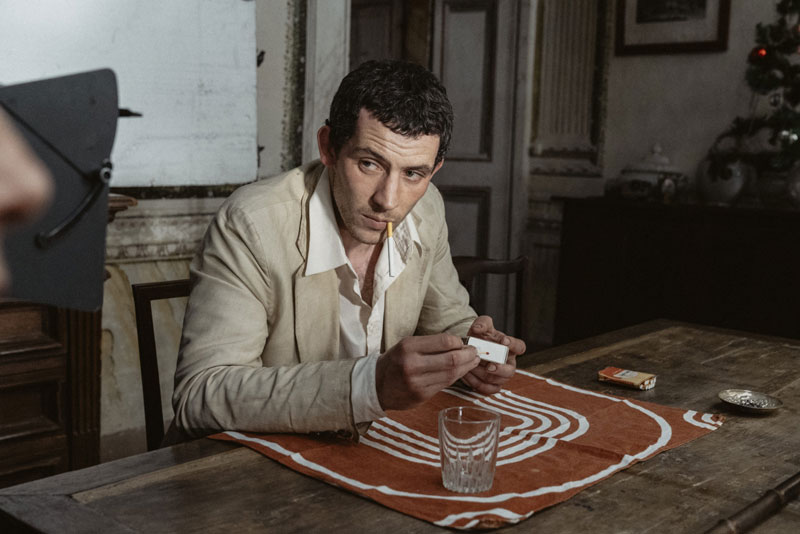
La Chimera (Alice Rohrwacher, 2023).
The greater the director’s engagement with reality, the more she deepens the roots of her fable, inventing a language with which to express her reflection on the individual and society, reaching a point of no return in La Chimera with an ending of symbolically charged beauty, in the face of which we doubt the legitimacy of feeling grief. Arthur is a melancholic character, straddling the underworld, whose motivation is a hypnotic enigma, and who is torn between crime and a redeeming chimerical passion for Beniamina, absent without our knowing the cause, as his mother’s (Isabella Rossellini) allusions to his return seem like a denial of a fateful reality. Flora lives in a decaying mansion, an open tomb of faded frescoes, within whose walls hide the two children of her maid-singer-pupil, Italia, played outstandingly by a Carol Duarte (The Invisible Life of Eurídice Gusmão) who overflows with candor and determination. Arthur lives in a hut attached to a hill, the abandoned train station becomes a communal shelter made fit for the dispossessed, and a few meters below it all lie the remnants of history that have survived centuries of looting. It is a matter of either dispossessing the past or rehabilitating it, or digging in and denying the present, or perhaps living in the moment like a bandit who doesn’t believe in tomorrow.
What is the value of treasures from the past, when their legitimacy can be falsified and their trail disguised at will? Museums, collectors, and commissioned looters are not the same kind of criminals, and Rohrwacher takes advantage of this to point out the lack of class consciousness at the bottom of the social pyramid, because the marginalized are capable of cheating the peasants. At the same time, they need the powerful to buy the fruits of their plunder. And amid this brouhaha of rogues, persecutions, and pillage, where the living live by profaning the dead and their legacy, at the end of the adventure, a (red) thread connects the limbo of the present with that of the past, through beauty, even if it is only visible to Arthur, that tormented Orpheus, one of the best portraits that an essential, free and radical director has given us.


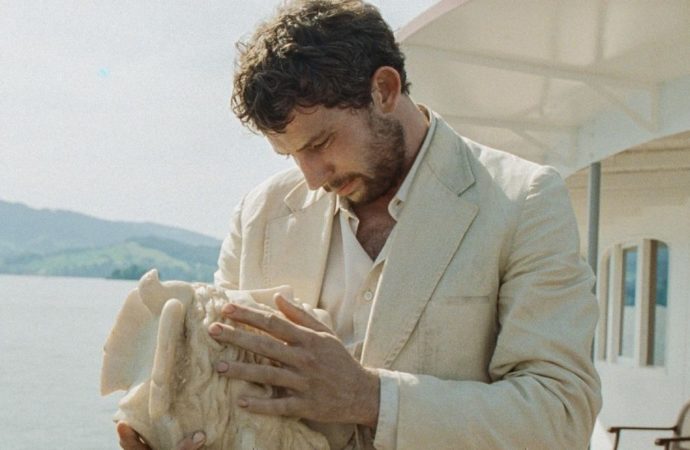


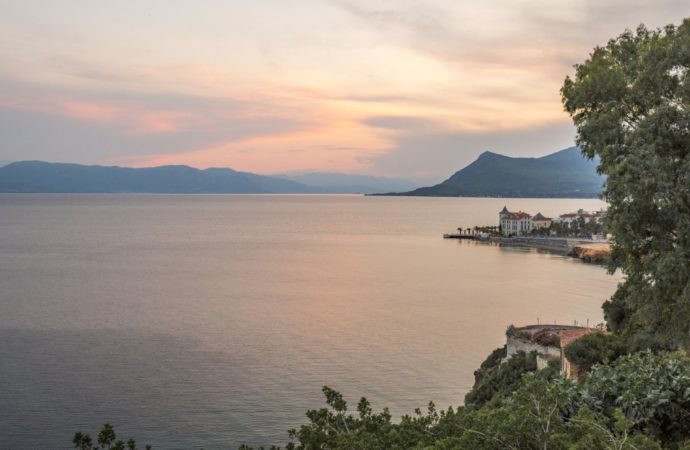
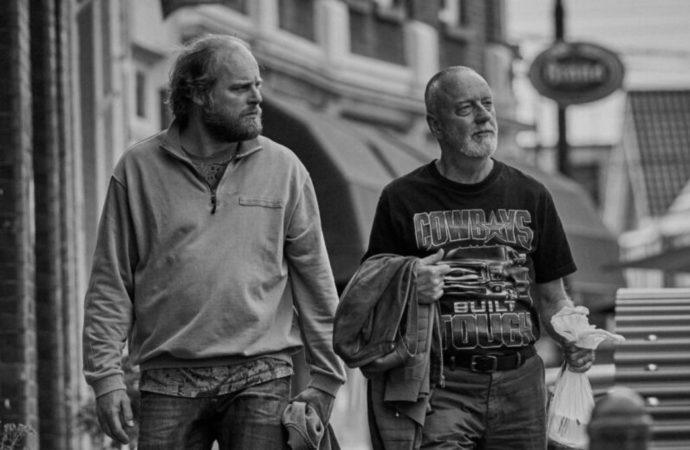
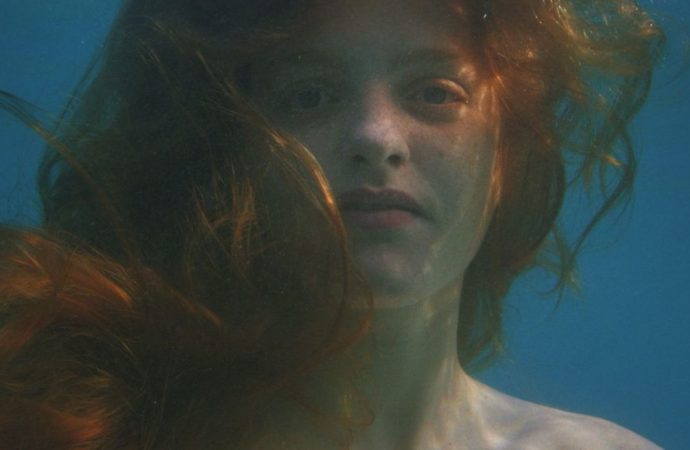
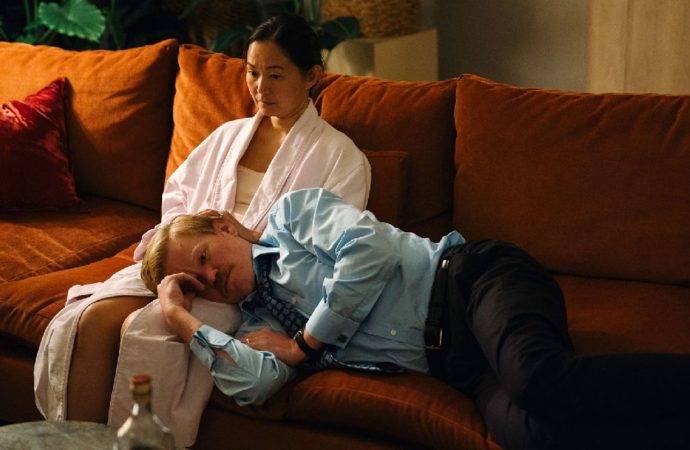
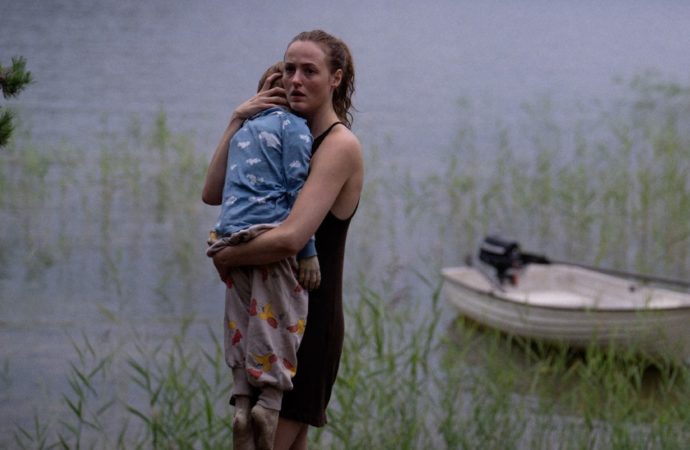

No one has posted any comments yet. Be the first person!